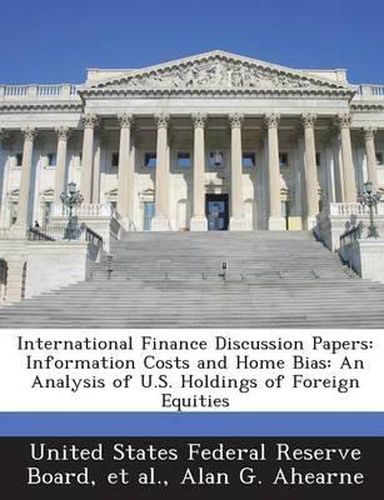Readings Newsletter
Become a Readings Member to make your shopping experience even easier.
Sign in or sign up for free!
You’re not far away from qualifying for FREE standard shipping within Australia
You’ve qualified for FREE standard shipping within Australia
The cart is loading…






We test extant hypotheses of the home bias in equity holdings using high quality cross-border holdings data and quantitative measures of barriers to international investment. The effects of direct barriers to international investment, when statistically significant, are not economically meaningful. More important are information asymmetries that owe to the poor quality and low credibility of financial information in many countries. While a direct measure of information costs is not available, some foreign firms have reduced these costs by publicly listing their securities in the United States, where investor protection regulations elicit standardized, credible financial information. A proxy for the reduction in information asymmetries-the portion of a country’s market that has a public U.S. listing-is a major determinant of a country’s weight in U.S. investors’ portfolios. Foreign countries whose firms do not alleviate information costs by opting into the U.S. regulatory environment are more severely underweighted in U.S. equity portfolios.
$9.00 standard shipping within Australia
FREE standard shipping within Australia for orders over $100.00
Express & International shipping calculated at checkout
We test extant hypotheses of the home bias in equity holdings using high quality cross-border holdings data and quantitative measures of barriers to international investment. The effects of direct barriers to international investment, when statistically significant, are not economically meaningful. More important are information asymmetries that owe to the poor quality and low credibility of financial information in many countries. While a direct measure of information costs is not available, some foreign firms have reduced these costs by publicly listing their securities in the United States, where investor protection regulations elicit standardized, credible financial information. A proxy for the reduction in information asymmetries-the portion of a country’s market that has a public U.S. listing-is a major determinant of a country’s weight in U.S. investors’ portfolios. Foreign countries whose firms do not alleviate information costs by opting into the U.S. regulatory environment are more severely underweighted in U.S. equity portfolios.